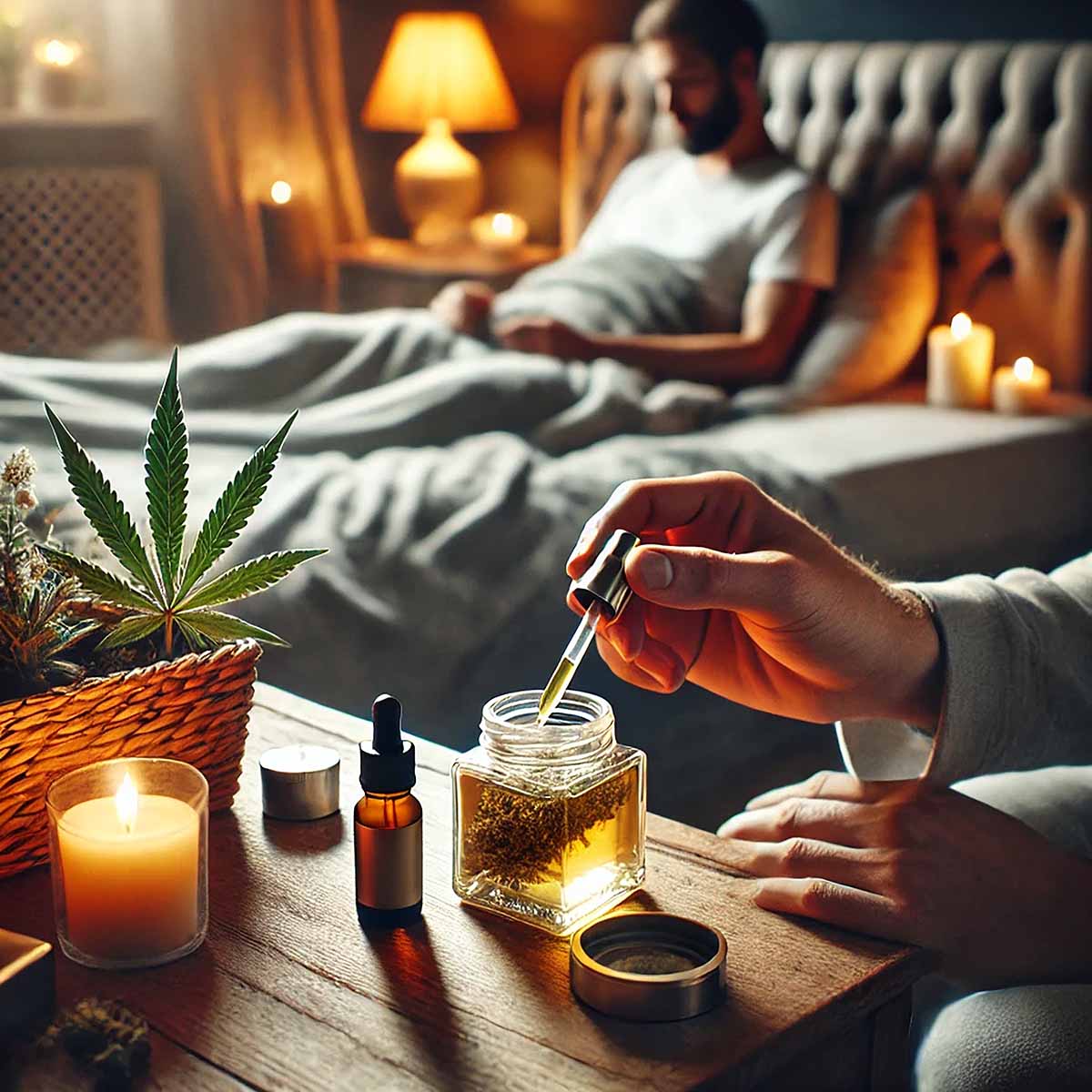Sleep disorders affect millions of individuals worldwide, disrupting their quality of life and overall health. While conventional treatments are available, many are turning to cannabis as a natural remedy to manage sleep disorders and improve sleep quality. Let’s explore how cannabis can be used to address sleep issues, examining its potential benefits and considerations.
Understanding Sleep Disorders
1. Types of Sleep Disorders:
- Insomnia: Difficulty falling or staying asleep.
- Sleep Apnea: Interrupted breathing during sleep.
- Restless Legs Syndrome (RLS): Uncomfortable sensations in the legs causing an urge to move them.
- Narcolepsy: Excessive daytime sleepiness and sudden sleep attacks.
2. Impact on Health:
- Physical Health: Chronic sleep disorders can lead to serious health issues such as heart disease, diabetes, and obesity.
- Mental Health: Lack of sleep is linked to mental health problems like anxiety, depression, and cognitive impairment.
How Cannabis Can Help
1. Cannabinoids and Sleep:
- THC (Tetrahydrocannabinol): THC, the psychoactive component of cannabis, has sedative properties that can help reduce the time it takes to fall asleep. It can also influence the sleep-wake cycle by increasing the amount of deep sleep.
- CBD (Cannabidiol): CBD is non-psychoactive and is known for its calming effects. It can help reduce anxiety, which is often a barrier to sleep, and may promote overall relaxation without the “high” associated with THC.
2. Terpenes and Sleep:
- Myrcene: Known for its sedative effects, myrcene is commonly found in indica strains and can help with sleep induction.
- Linalool: This terpene, also found in lavender, has calming and anxiety-reducing properties that can aid sleep.
- Caryophyllene: With its anti-inflammatory and pain-relieving properties, caryophyllene can help those whose sleep is disrupted by chronic pain.
Scientific Evidence
1. Research Studies:
- Insomnia: A study published in the Journal of Clinical Sleep Medicine explored the effects of cannabis on sleep among individuals with chronic insomnia. The research indicated that cannabinoids, particularly THC and CBD, may significantly improve sleep quality and reduce insomnia symptoms. Participants reported falling asleep faster, experiencing fewer nighttime awakenings, and waking up feeling more rested. This study underscores the potential of cannabis as a therapeutic option for insomnia.
- Sleep Apnea: A study published in the Journal of Clinical Pharmacy and Therapeutics examined the effects of THC on sleep apnea. The research found that THC might help reduce sleep apnea events by stabilizing the respiratory system during sleep. Participants in the study experienced fewer episodes of disrupted breathing, suggesting that THC could be a promising therapeutic option for managing sleep apnea.
- Restless Legs Syndrome (RLS): A case study published in the Sleep Medicine journal explored the potential benefits of cannabis for individuals suffering from Restless Legs Syndrome. The research indicated that cannabis use might alleviate the uncomfortable sensations associated with RLS, leading to improved sleep quality. Patients in the study reported significant relief from symptoms and an overall better night’s sleep after using cannabis.
Potential Benefits
1. Improved Sleep Quality:
- Faster Sleep Onset: Cannabis, particularly strains high in THC, can reduce the time it takes to fall asleep.
- Longer Sleep Duration: Some users report longer sleep durations and fewer nighttime awakenings.
- Enhanced Deep Sleep: THC is known to increase deep sleep stages, which are crucial for physical and mental recovery.
2. Anxiety Reduction:
- CBD for Anxiety: By reducing anxiety, CBD can make it easier to fall and stay asleep, contributing to a more restful night.
Considerations and Risks
1. Potential Side Effects:
- Daytime Drowsiness: High doses of THC can lead to residual drowsiness the next day.
- Tolerance and Dependence: Regular use of THC can lead to tolerance, requiring higher doses for the same effect, and potential dependence.
2. Legal and Health Considerations:
- Legal Status: The legality of cannabis varies by region. Ensure that you are compliant with local laws.
- Consult a Healthcare Provider: Always consult with a healthcare professional before starting cannabis for sleep disorders, especially if you are taking other medications.
Takeaways
Cannabis shows promise as a natural remedy for managing sleep disorders and improving sleep quality. Its sedative properties, ability to reduce anxiety, and influence on sleep stages make it a viable option for many. However, it is essential to consider potential side effects and legal implications. Always consult with a healthcare provider to ensure safe and effective use of cannabis for sleep.



